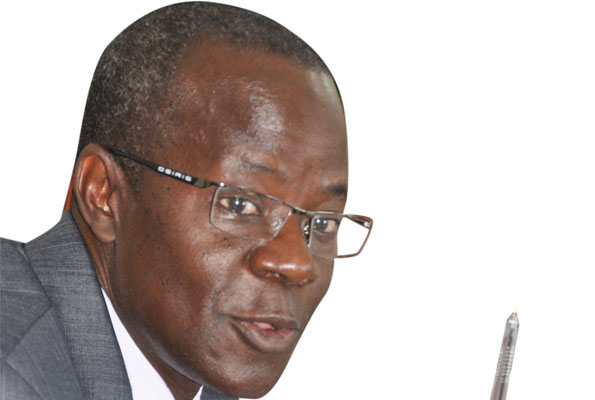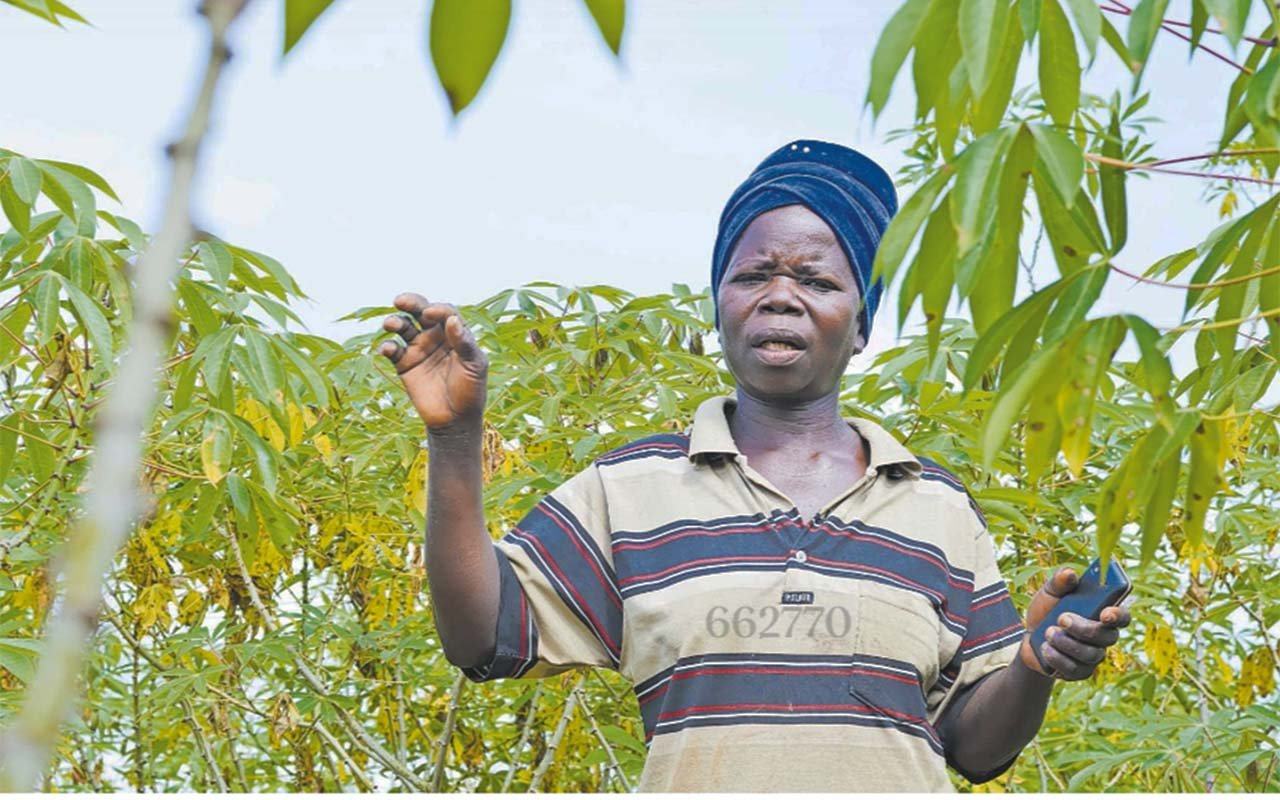Prime
MP Kyanjo opens up on his ‘poison’ scare

Former MP Hussein Kyanjo.
What you need to know:
ORDEAL. His sickness started with small pain in the mouth and he now labours to speak. Hussein Kyanjo, Makindye West MP managed to chat with Charles M. Mpagi on how he got into that state of health and how he copes.
His gaze is strained, the speech laboured. In fact, keeping a conversation for longer than half an hour let alone an hour with Hussein Kyanjo, the Makindye West MP, feels like such a sadistic act.
Yet, he does not flinch nor complain, much as every word drawn out of his mouth is an effort and the man who sits behind a simply furnished office in room 308 of the East Wing of Parliament building looks like a total stranger to the smiling portrait that sits at the far corner
of his office.
Hussein Kyanjo, the shadow minister in charge of the Presidency was until two and a half years ago one of the brightest lights of the 9th Parliament. Five years in the 8th Parliament had shaped a man who cut his teeth in politics through the now banned open air live broadcast radio debates popularly known as Bimeeza. He had metamorphosed into one of the finest and some would say hardest hitting legislators Uganda has known.
Humble to a fault, Kyanjo, the only MP representing the Justice Forum Party (JEEMA) in the August House was one of the most vicious opposition figures, the position enhanced by his sobriety in approach to legislative issues and yet very uncompromising.
He tells me in the first comprehensive interview he has offered since, of how he enhanced his position by being an avid reader to become a knowledgeable legislator.
“I managed to become a good legislator through reading a lot of literature. Parliament has a lot of material to read and I made it a point to read extensively,” he says.
How then did he fall silent?
Kyanjo, says he had travelled to Johannesburg South Africa for Parliament business in early 2011 when two days into the trip, he woke up to realise he was struggling to speak.
“I started feeling something in my tongue and I was failing in my speech. I thought it was something small. I had gone to South Africa with Amuriat Oboi of the FDC who represents Kumi County. I couldn’t speak well and I thought it was something small that could be fixed easily by a doctor on return home.
I went to see the doctor but he could not identify what my problem was. I had some missing teeth and I thought it was one of the problems, but when I went for that (check), it was not part of the problem until I went to an Iranian-owned hospital in Dubai. There, they diagnosed me with a disease called dystonia.
Diagnosed
They said it was a rare stubborn disease; it resists drugs and is very disturbing to one who has it. They gave me some drugs which I started using but also referred me to a London hospital where they said it was going to be better for me.
So, when I returned, I went to the Speaker and explained to her my ordeal and she gave me a go ahead and Parliament sponsored me to go to the University Hospital of London where I have been getting treatment for the last two and a half years.”
Kyanjo says he now has to travel to London every three months to get two toxin injections on the lower part of his jaws to keep the muscles in shape.
Kyanjo says doctors told him his condition could have been caused by any of three factors, an inheritance of the disease, effects of a serious accident or poison.
“I checked and found I could not have inherited it because no one has suffered from such a disease in our family. It also cannot have been caused by an accident because I have never been involved in any. So, I was left with one possibility—poisoning.”
Kyanjo says during a typical attack, he keeps fighting not to swallow his tongue.
Struggling to cope
But the treatment has enabled him resume work and we conducted our interview in his Parliament office. As soon as we were done, he headed straight to a committee meeting.
Evidently frail from the battering of two years of incapacity, Kyanjo believes he “ate” the poison responsible for his current condition but cannot point to a specific source or motive.
“I believe I ate the poison in Kampala, but I can’t tell where before I went to South Africa,” Kyanjo says.
He suspects a political motive and says the strike came after his very visible role in heated oil bribery claims that rocked Parliament at the turn of 2011.
He says he had been warned before by supporters and admirers to watch where and what he ate but he took no caution believing he did not have such avowed enemies as would want to take his life.
“But now I carry my own food wherever I go,” he said.
But searching for a motive can easily lead to a wild chase, though, Parliament is no stranger to such claims.
Similar claims
In December 2012, youthful Butaleja MP Cerinah Nebanda died under controversial circumstances. In a recently published book, US researcher and writer Helen Epstein broaches the idea Nebanda was poisoned.
Though her former boyfriend Adam Suleiman Kalungi is serving a jail term for causing her involuntary death questions that led to the jailing of MPs—Chris Baryomunsi, a professional medical practitioner and a seasoned pathologist at Mulago Sam Onzivua —over the controversial postmortem, has kept questions lingering.
It was former coordinator of intelligence agencies, now a dissident exiled in London Gen David Sejusa who claimed last year that Nebanda was a victim of an “assassination”. According to Sejusa, others were in line for a similar fate if they had not succumbed already.
Having fallen ill by the time of the Nebanda death debate in Parliament, Kyanjo’s situation was a reference highlighted by his colleagues in Parliament especially those on the opposition side. However, Kyanjo is reluctant to point fingers.
Serving last term in Parliament
His unfortunate situation has not, in his view, diminished his support in Makindye West, since regaining some strength and mobility, he has been engaging in constituency work as well as Parliamentary responsibilities to his best.
“My constituents have been very understanding. I thank God for them, ” he says. “It is very humbling to see so many people coming to my home to offer support, they have reduced the traditional demands on an MP by more than 80 per cent, now instead of me giving them, they are the ones who are giving me support.
“The other day, an old woman came to visit me at home and I was humbled when she pulled out Shs10, 000 and gave it to me.”
However, Kyanjo says he is serving his last term, a decision he says he made years ago.
“It has nothing to do with what happened to me. I made a decision to serve only two terms and I will not be seeking re-election in 2016. I think two terms are enough, I will go back to business,” he said.
A husband and father, Kyanjo says apart from supporters, he has leaned on a very supportive family and is grateful to Parliament for the timely assistance that has kept him alive where he thought he would have died.
WHAT IS DYSTONIA?
The online encyclopedia, Wikipedia defines dystonia as “a neurological movement disorder, in which sustained muscle contractions cause twisting and repetitive movements or abnormal postures.
The disorder may be hereditary or caused by other factors such as birth-related or other physical trauma, infection, poisoning (e.g., lead poisoning) or reaction to pharmaceutical drugs, particularly neuroleptics.”
How it affects
The US based National Centre for Biotechnology Information (NCBI) says dystonia is “usually a lifelong condition with persistent pain and disability. Focal dystonia affects a single part of the body; generalised dystonia can affect most or all of the body.”




